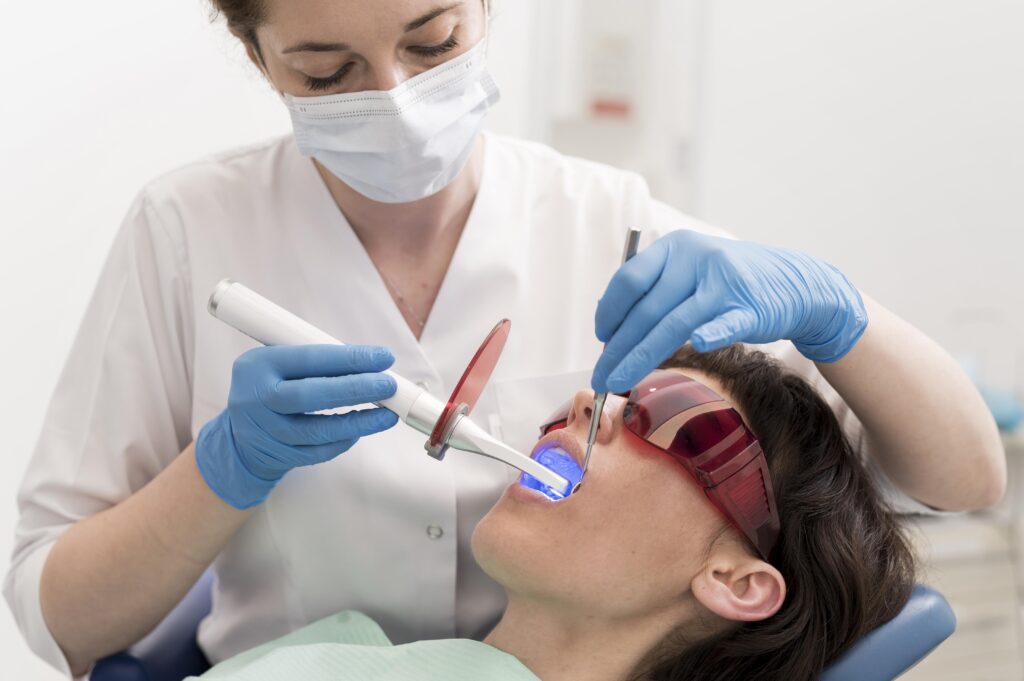Every day, people suffer from toothaches, bleeding gums, bad breath, and sensitive teeth. These are among the most common dental problems—and most are preventable. Understanding what causes them and what actions you can take to avoid them helps maintain oral health and protects your smile for life.
What Makes Dental Problems So Widespread?
Dental issues like cavities and gum disease often develop without warning. Tooth decay results from the acid produced by bacteria feeding on sugars, which gradually erodes enamel and creates cavities. Gum disease (periodontal disease) begins quietly as inflamed, bleeding gums and can progress to bone loss if unchecked. Other common concerns include dry mouth, enamel wear from brushing, and sensitivity from whitening or acid exposure.
These problems affect millions worldwide—decay being the most common dental disease, and gum disease the second.
Preventing Common Dental Problems: Practical Steps That Work
Prevention is the best defense against Common Dental Problems. Simple daily habits, smart choices, and routine dental visits can greatly reduce risks.
Daily Oral Hygiene Habits
Brushing Twice Daily With Fluoride Toothpaste
Brush at least twice a day for two minutes each time, using a soft-bristled toothbrush and fluoride toothpaste. Fluoride strengthens enamel. Experts even recommend not rinsing right away after brushing so fluoride can stay longer on your teeth.
Flossing Every Day
Floss once a day—preferably at night—to remove plaque between teeth and under the gumline. This helps prevent cavities and gum disease where a toothbrush can’t reach.
Mindful Brushing Technique
Avoid brushing too hard or right after eating. Brushing aggressively or immediately after meals can wear enamel and harm gums. Use gentle, circular strokes with a soft brush.
Smart Teeth Protection and Habit Control
Limit Acidic And Sugary Foods
Foods and drinks with a pH below 4 (like sodas, juices, refined carbs) erode enamel. Reduce intake and rinse with water afterward. WHO also urges low-sugar diets and choosing water as the main drink to protect oral health.
Use Dental Sealants And Fluoride
In children and at-risk adults, applying dental sealants to chewing surfaces helps prevent cavities by smoothing grooves that trap food. Community water fluoridation and fluoride varnishes are also effective.
Protect Against Wear From Grinding Or Hard Habits
Bruxism (teeth grinding) wears down enamel and may require a night guard. Avoid biting hard objects like ice or pen caps, which can crack teeth or worsen enamel damage.
Tackle Specific Dental Conditions
Managing Dry Mouth
Dry mouth can increase decay risk because saliva helps clean your teeth. Drink water often, use sugar-free gum or mouthwash made for dry mouth—avoid alcohol-based rinses, which can worsen dryness.
Addressing Sensitivity And Abrasion
Tooth sensitivity may result from enamel loss or dentin exposure. Using desensitizing toothpaste or mouthwash with potassium can help reduce sensitivity. Abrasion from brushing too forcefully causes V‑shaped notches near the gumline; use a soft brush and gentle strokes instead.
Regular Dental Visits and Professional Care
Routine Dental Cleanings
Regular visits to your dentist allow early detection of decay or gum disease, and professional cleanings help remove plaque and tartar that brushing misses.
Cancer Screening, Bite Correction, And Professional Advice
Dentists screen for oral cancer during checkups. Early detection is life-saving. If you have a misaligned bite, orthodontic treatments like braces or aligners can reduce tooth wear and chewing issues.
Summary – Your Strategy Against Common Dental Problems
Build Good Habits
- Brush twice daily with fluoride toothpaste, gently and thoroughly.
- Floss daily to clean hidden areas.
- Wait a bit before rinsing to let fluoride work longer.
Be Food- and Lifestyle-Wise
- Cut down on acidic drinks and sugary or refined carb snacks.
- Drink water and chew sugar-free gum after meals.
- Avoid hard habits like ice chewing or using teeth as tools.
Protect and Manage Specific Risks
- Use dental sealants for vulnerable grooves.
- Address grinding with mouthguards or habit adjustments.
- Choose gentle brushing to prevent abrasion and sensitivity.
Stay Connected with Your Dentist
- Get regular cleanings and checkups.
- Seek early treatment for any discomfort or changes.
- Follow professional guidance on habit and treatment adjustments.
Following these steps helps you stay ahead of Common Dental Problems, keeping your smile healthy, painless, and bright. Prevention is always simpler than fixing damage later—start building these habits today!




